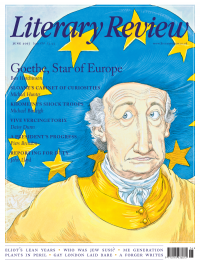Simon Heffer
Critical Times
The Cambridge English faculty was founded in 1919, but when I went up to read the subject sixty years later my college had only just started admitting undergraduates to do so. It didn’t even have a dedicated director of studies. When I asked why, I was told that, until recently, the fellowship had believed that a gentleman (there were no women in the college then) should already have read the great works of English literature, irrespective of what he planned to study. I have been musing on this for nearly forty years.
During the current election campaign, a number of promises have been made about education. One is to beef up English literature studies in schools by teaching more of the ‘classics’. To me that evokes Chaucer, Shakespeare, Milton, Austen, Eliot and possibly Dickens; others will think of Ian McEwan, Carol Ann Duffy and Salman Rushdie. In a world where the demands on teenagers are greater than ever, getting them to read exacting works of literature, particularly in a thoughtful way, will prove something of a challenge.
The benefit of studying literature, is to develop the critical faculty: to accomplish the feat, enjoined by Matthew Arnold, of discerning good from bad, by learning what makes ‘good’ and what makes ‘bad’. Manifestly, the more one reads, the more one has standards against which to judge each new work

Sign Up to our newsletter
Receive free articles, highlights from the archive, news, details of prizes, and much more.@Lit_Review
Follow Literary Review on Twitter
Twitter Feed
It wasn’t until 1825 that Pepys’s diary became available for the first time. How it was eventually decrypted and published is a story of subterfuge and duplicity.
Kate Loveman tells the tale.
Kate Loveman - Publishing Pepys
Kate Loveman: Publishing Pepys
literaryreview.co.uk
Arthur Christopher Benson was a pillar of the Edwardian establishment. He was supremely well connected. As his newly published diaries reveal, he was also riotously indiscreet.
Piers Brendon compares Benson’s journals to others from the 20th century.
Piers Brendon - Land of Dopes & Tories
Piers Brendon: Land of Dopes & Tories - The Benson Diaries: Selections from the Diary of Arthur Christopher Benson by Eamon Duffy & Ronald Hyam (edd)
literaryreview.co.uk
Of the siblings Gwen and Augustus John, it is Augustus who has commanded most attention from collectors and connoisseurs.
Was he really the finer artist, asks Tanya Harrod, or is it time Gwen emerged from her brother’s shadow?
Tanya Harrod - Cut from the Same Canvas
Tanya Harrod: Cut from the Same Canvas - Artists, Siblings, Visionaries: The Lives and Loves of Gwen and Augustus John by Judith Mackrell
literaryreview.co.uk